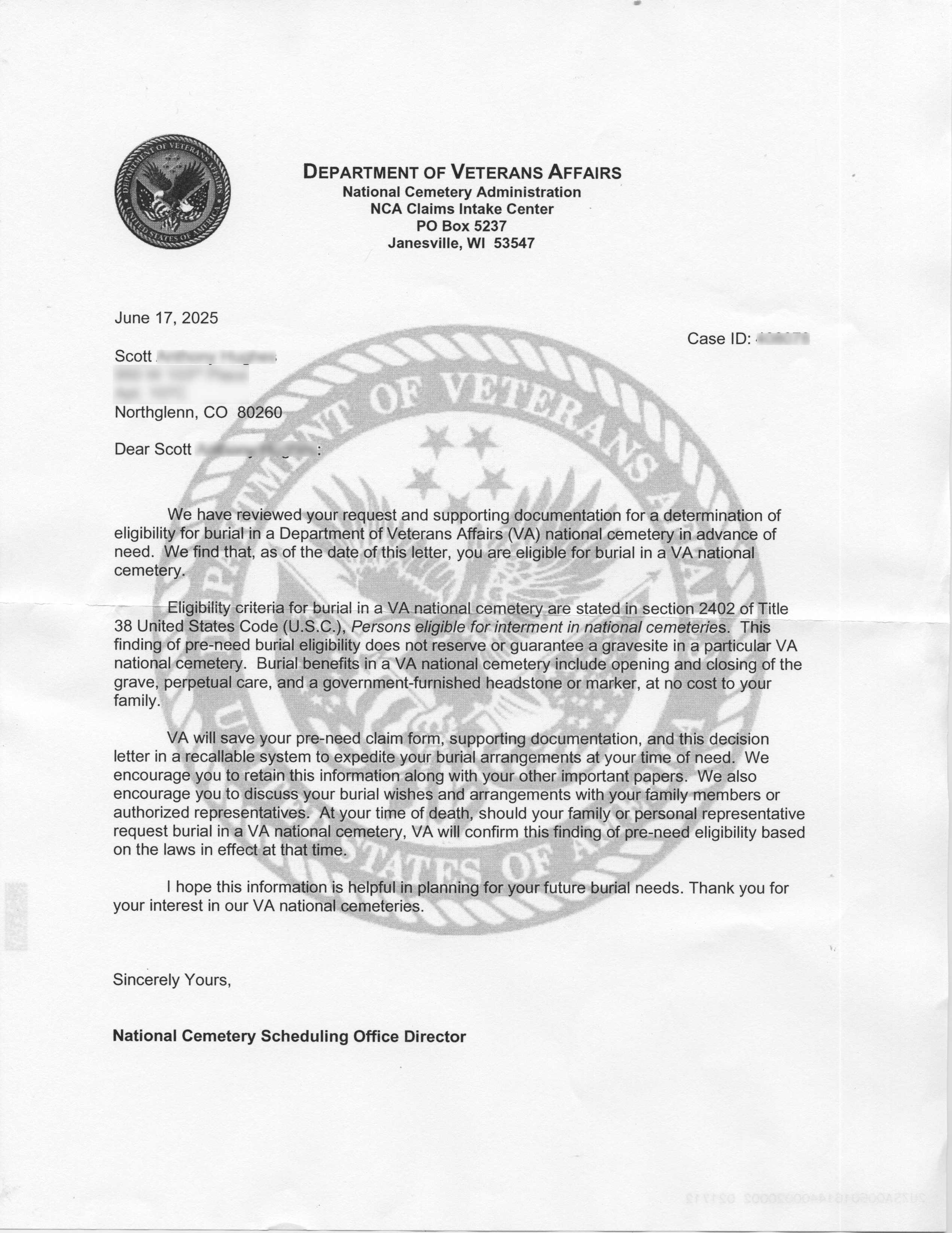irredenta.org
Note: I often have links set to open in a new tab & try to indicate that using the mouse hover popup.
other sites of mine:
- northglenn.news - Proposal for AI generated local mayor candidate opponent (for local educational purpose; instead of weird, scary real one)
- realnextdoor.org - an advocacy webpage regarding local laws that protect renters
- freequaker.org - My website presenting some of my family genealogy work
Above video is of former President G.W. Bush answering press question about Saddam Hussein on 22 Mar 2002. It was the evening press conference when President Fox visited the White House.
There is a controversy (from my perspective, as well others too, I'm sure) in the contention that there was "wasted military spending" and it was supposedly a "mistake" invading Iraq. I've avoided much of the argument, although occassionaly I'd comment here or there that Saddam was using chemical weapons on the Kurds. I also understood that he had stockpiles of the wmds and I eventually found out how he came about them so I then knew that part where there was reasoning behind concealing the entire truth. (Saddam was once considered an ally of Britian, and so by extention that meant the U.S. too.)
I'm an advocate for people who've been trauma'd, abused, etc. and I know there is/was always a left-leaning or liberal perspective about military in the U.S. (particularly, and is what only concerns me as a citizen) but as a veteran I also knew that due to civilian jealousy, exaggeration and misconception (often there's a critical omission that will substantially alter the perceived morality and justification of military action) there existed tales of nefarious conspiracies where the ideology was that my gov't is the most evil on this planet earth ... ← & of course that discussion will spiral into how it's really a problem about our gov't ..., and that'll raise red flags for me since people who have some problem with a large amount of people that's racially diverse will be alluding to the diversity part being their main complaint, but back to square one. People found a button with me and it's plum full of "fundamental attribution error" to where the end result is that of course it's me who's the real problem. In this case (as with most) it's because I refuse to hate myself for other people's sadistic pleasure.
As an old counselor with a masters degree explained to me, I volunteered for the military (as if I'm too fucking stupid to understand that), but like I pointed out to him ... I had friends pulling armed robberies and getting in shootouts with police and trying to lure me into trying intravenous drugs. The only decent paying work I could do was dangerous and degrading. My father kicked me out of the house when I was seventeen because I went and got a general equivalency degree instead of finishing public high school where I was bullied and outcast. My father was also big on DIY so he had me doing physical labor when I was an adolescent that violated child labor laws (but he paid me & I accepted, was his cop-out). My friends would laugh at me because of how he treated me... it was obviously my fault since he was always respectful & nice to them. I was like wth? At the time I joined I really did not see myself as having any other alternative ... there was "Job Corps" and an alternative school, but niether one was acceptable to my father when I was "still living under his roof".
Anyway, so yet again this issue comes up for me where I'm blindsided with this ideology that I'm supposed to be in concordance with, where what it all amounts to, simply put, is that Saddam's being declared a war criminal (and subsequent execution) was wrong ... I realize that to be true to the Quaker tenet though, that capital punishment is wrong, and so the exact terminology used shouldn't matter. As it stands however, it wasn't the U.S. gov't in and by itself that conducted all of that, he was a leader of a foreign country afterall, so no small feat regardless of whether or not justifiable (for sake of argument here), and so there is contention then that the U.S.A., in all its power & might, is wicked evil to the extent where Saddam was a fucking saint actually. He brought stability to the nation (is what one commenter mentioned) and was actually helpful to the Kurds (← is what this propaganda video explained) ... yet I don't think the words "brutal" & "tyrant" just came up out of nowhere. There exists photographs and reports of mass graves, as well as anecdotes of torture by Saddam's regime and it's odd that some are from athletes because of their soccer playing. Am I to dismiss all of those accounts as being false? Or is it in fact an example of the philosophy of "for a greater good" of some kind? But of course that's a matter of opinion with sociological factors that are complex with regional context that'd stretch back to the beginning of recorded history.
There's an actual good part here though, and that is the rest of the information given in the video documentary about the history of the region would be accurate, I'd think. More specifically what caught my attention is that the Kurds were appealing to communist nations for help which is something that isn't a culturally acceptable action, but here is the social science aspect: First, this was decades ago but the Kurds were still certain to understand that there was opposition (in form of capitalist countries) to that ideology along with the dominant ethnic culture of Saddam's, but there were a whole mass group of people who the video narrator described as belonging to a "irredenta", and minority (I knew from my prior education), who were all in agreement (enough) on that objective to where they were physically fighting for their goal, and losing. They were an oppressed culture and so we (as sociologists here) shouldn't want to be critical of them identifying as being oppressed (by denying the reports of brutality they suffered), or what is more pertinent for the culture studies aspect is that they, en masse, decided on "communism", of all things, and we are not them in their circumstances so it's not for us to judge them. That's significant and I realized that there exists commonality with the nations where the majority of people want to go that route.
I'd like to point out here that I'm not formally educated about political science, and what I'm about to bring up here most likely as been mentioned by somebody at one time or another since I'm not so grandiose to think myself as genius on any account. The countries that turn to communism are made up of the same (overall) race or ethnicity, and don't have a subordinate demographic, at least to same extent that the Occidental capitalist countries do. The other question would be is how much do the people know about what the wealthy, capitalist nations have in contrast to what they do? Of course that is rhetorical since as an autonomous nation (not neccessarily a country) their ventures to create substainable society would either need to be in closed economy (again, I'm not educated on the political or economical science aspect) and not depend on import and/or export, or manufacturing is publically administrated through gov't, basically. I suppose in the "closed economy" (self-substainable) paradigm the manufacturing would need to be managed by gov't too. The point is, for purposes here, is why that seems the best option. It would stand to reason that the idea would be to avoid establishing an unfair socioeconomic disparity where there is some distinguishable separation between the people who are obliged to sell their labor and those who don't need to, as is the norm in capitalist countries. Of course the posit is that there's incentive to become educated enough to make a living without it being labor intensive, and there's a system in place which facilitates (a facade of) equal opportunity in my country, but the education is for sell and the platitudes begin there with "buyer beware" and "you get what you pay for" <snicker> ... you didn't think we'd make it too easy, did you?
What also needs to be addressed here, is the stereotypical idea from Western culture standpoint, of what exactly the problem with communism is, and just to venture a guess I would say that the dominant idealogy is that there'd be too many people who wouldn't want to do their fair share of work. Actually it would be more in the lines of there wouldn't be incentive to innovate, or it'd suppress a person's motivation & freedom to control products of their own creation. The other critical aspect here is that the examples we have for evaluating the system's effectiveness are not very accurate representations since there exists their military spending, and that interferes with a goal of self-substainable economy. Of course there is a predominant psuedo-moralism too, where the "psuedo" part is that the inevitable double-standards exist. Prostitution would always be present in some form, whether legal or not, and who ultimately profits from it the most is an indication of what the equity or equality condition is.
What is most critical here, is that the format and source of the discussion of the U.S. foreign policy and the invasion of Iraq following the attacks on the NYC WTC. It's clear to me that it's now standardized that the narrative is that the U.S. was wrong to invade but the issue is then that the non sequitur is that would imply that Saddam was a sweetheart of a man... an angel or saint but then of course not to that extent, then what? The reality is that the whole affair is complex where the details include factors which are out of the of the psychology academic discipline Saddam Hussein and chemical weapons Iraq
About me...
The below images establish my cultural ethnicity as Society of Friends, a.k.a. Quaker, but a non-conforming branch in regards to always adhering to pacifism, and more specifically, that opposition to violence is reasonable, but not always practical. The point is that I was a person that any particular group of people could figure out how I was to be "othered", or just didn't adhere to my posit exactly right, i.e., ad hominem, or kafkatrap (type thing). There does exist a socioeconomic caste of people where their posit is to go ahead and be all about hedonistic conformity, and when they're white people they will even feign non-racist if they need to, but with hubris... and then they'll be liberal, and can blame gov't, military, the man, etc., but while avoiding the stigma of racism themselves, they'll inevitably reinforce disparity. In any event, if there is ever an issue with my work here, then the first things I'd bring up in my defense is the below documents.
Benjamin Franklin McCurdy, was my great grandfather, and his draftcard is included. I understood that my family had a position overall, of being defensive of equality, as I'll put it here. I was taught from young age that we had special consideration for American Blacks, and I learned their history which included the ships, which could take close to two months to cross the ocean. I also knew at young age about the mistreatment of Blacks even after slaves were freed and I was further instructed that the specifics of the Civil War weren't my business; & by that there was instilled awareness of racist white people who'd use trickery to coerce me to be like them, with one way being discussing the war. There's other phrasing too, that people of the culture who are reminiscent of Antebellum South, and even those that understood the ongoing tensions and could go either way. Wasn't their problem... the racism & all that so who better to b-lame then those who understood something about it all? Why learn about anything unless it'll be a beneficial pay-out, of course how is it possible to know if something will provide some tangible gratification, validation, etc., unless it's pursued? So there's inherent risk with any endeavor and so if it can also be easily rebuffed as unnecessary, or counterproductive somehow, then the risk increases to the point where people will tend to shun anyone who posits to challenge oppression. Why be friends with somebody who'd be ridiculed at some point? There are people throughout history who'd lost the ability to "fit-in" but yet had contributed enormously to the benefit of humanity. Quite the opposite of the stereotypical villian, but the two could be effectively switched in context, is the point. A person may overcome some stigma (from trauma) and become better (more aware & compassionate) people as a result, and then as they return to the world, as it were, people might suggest they wasted their time in the whole affair, they could have been enriching themselves instead ... where the implication is that it was the person's own choice to be "held back" (by the trauma) and any "betterment" would've come anyway ... no different than what they have, after all, of course they know all about (whatever the topic is) ... but they also have nice house & all the trimmings & here, have some wine (type thing).
The "Termination of Contact Letter" I received from HUD because of Miki Manigault's commemorative website. Plain text of letter:
Subject: Housing Discrimination Complaint Inquiry — Termination of Contact
HUD Inquiry Number: 761239
Dear Scott H
The U.S. Department of Housing and Urban Development (HUUD) administratively enforces the Fair Housing Act (the Act), 42 U.S.C. §3601, et seq., as amended. The Act prohibits discrimination in the sale, rental, and financing of dwellings, and in other housing-related transactions, because of race, color, religion, sex (including gender identity and sexual orientation), familial status, national origin, and disability. On February 5, 2024, our office received the above referenced inquiry you submitted online alleging housing discrimination.
It has come to my immediate attention that you may have engaged in cyberstalking activities related to a member of our staff. While the matter has been referred to Federal Protective Service for investigation, the safety of our employees is of the utmost importance to HUD and our office will take every reasonable precaution in these situations. Your inquiry has been closed and our office is terminating contact with you as of the date of this letter. This decision is final, and HUD will no longer respond to your correspondence or telephone calls about this matter.
You may consult with a private attorney to ascertain any other right of action you may have under federal, state or local laws. Notwithstanding this termination of contact, you have the right to pursue a civil action in an appropriate U.S. district court or state court no later than
two (2) years after the occurrence or the termination of an alleged discriminatory housing practice.
Sincerely,
James Whiteside
Region VIII Director
Office of Fair Housing and Equal Opportunity
Plain text of letter from U.S. Veterans Affairs stating that I have a spot in a national cemetary:
June 17, 2025
Case ID: xxxxxx
Northglenn, CO 80260
Dear Scott ...:
We have reviewed your request and supporting documentation for a determination of eligibility for burial in a Department of Veterans Affairs (VA) national cemetery in advance of need. We find that, as of the date of this letter, you are eligible for burial in a VA national
cemetery.
Eligibility criteria for burial in a VA national cemetery are stated in section 2402 of Title 38 United States Code (U.S.C.), Persons eligible for interment in national cemeteries. This finding of pre-need burial eligibility does not reserve or guarantee a gravesite in a particular VA
national cemetery. Burial benefits in a VA national cemetery include opening and closing of the grave, perpetual care, and a government-furnished headstone or marker, at no cost to your family.
VA will save your pre-need claim form, supporting documentation, and this decision letter in a recallable system to expedite your burial arrangements at your time of need. We encourage you to retain this information along with your other important papers. We also
encourage you to discuss your burial wishes and arrangements with your family members or authorized representatives. At your time of death, should your family or personal representative request burial in a VA national cemetery, VA will confirm this finding of pre-need eligibility based on the laws in effect at that time.
I hope this information is helpful in planning for your future burial needs. Thank you for your interest in our VA national cemeteries.
Sincerely Yours,
National Cemetery Scheduling Office Director
& about what I study
- Shell shock: Psychogenic gait and other movement disorders & treatment (Dr. Arthur Hurst)
- War Neuroses : Netley Hospital,1917 - Dr. Arthur Hurst (same video as the preceding link)
- The long-term costs of traumatic stress: intertwined physical and psychological consequences by: Alexander C. Mcfarlane 09 Feb 2010 | PubMed Central
- There Are No Rules About Psychiatric Diagnosis - And That Must End! Paula J. Caplan, NARPA 9/4/14
- Dr. Pat Bracken - Irish psychiatrist & philosopher: Post-Psychiatry, PTSD & Community Development | madnessradio.net | first aired: 05-09-2007 (so either May or September of 2007, depending :)
- Dr. Lucy Johnstone: The Power Threat Meaning Framework - Mad In America




